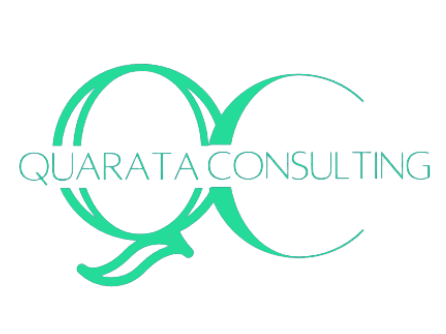Built to Lead: What It Takes to Be a Leader
In the world of entrepreneurship, where the road is often fraught with uncertainty and the stakes are high, leadership is not just a title; it’s a mindset. It’s about possessing the unique blend of qualities that inspire, motivate, and guide a team towards success. Built to lead is more than just a phrase; it’s a call to action for those who aspire to greatness. But what exactly does it take to be a leader? Is it something you’re born with, or can it be cultivated over time?
Pillars of Being Built to Lead
While there’s no one-size-fits-all formula for leadership, certain qualities consistently emerge as essential. These pillars, as we’ll call them, form the foundation upon which great leaders are built to lead.
1. Vision and Purpose
A true leader is not just a manager; they’re a visionary. They have a clear and compelling vision of where they want to take their business and the passion to drive it there. This vision serves as a beacon, guiding the team through challenges and setbacks.
A leader’s vision is more than just a goal; it’s a guiding star that illuminates the path forward. It’s a shared dream that unites a team, inspires commitment, and provides a sense of purpose. A strong vision is both aspirational and achievable, inspiring people to strive for greatness while also providing a roadmap for success.
Purpose is the driving force behind a leader’s vision. It’s the reason why they do what they do. A leader with a strong sense of purpose is motivated by more than just profit or personal gain. They are driven by a desire to make a difference, to create something meaningful, and to leave a lasting legacy.
2. Emotional Intelligence

Emotional intelligence is often overlooked but is crucial for effective leadership. It’s the ability to understand and manage your own emotions, as well as those of others. Leaders with high emotional intelligence can build strong relationships, resolve conflicts, and create a positive work environment.
Emotional intelligence is more than just being empathetic; it’s about understanding the complex interplay of emotions and how they can impact behavior, decision-making, and relationships. Leaders who are emotionally intelligent are better equipped to handle stress, manage conflict, and build trust with their team members.
Self-awareness is a key component of emotional intelligence. Leaders who are self-aware have a deep understanding of their own strengths, weaknesses, values, and triggers. This self-awareness allows them to manage their emotions effectively and make better decisions.
Empathy is another essential aspect of emotional intelligence. Leaders who are empathetic can understand the perspectives and feelings of others. This empathy allows them to build strong relationships, resolve conflicts, and create a positive work environment.
3. Resilience and Adaptability
The entrepreneurial journey is rarely smooth sailing. Leaders must be prepared to face setbacks, pivot their strategies, and learn from their mistakes. Resilience and adaptability are essential qualities that allow leaders to bounce back from challenges and seize new opportunities.
Resilience is the ability to bounce back from setbacks and challenges. It’s about maintaining a positive outlook, persevering through adversity, and learning from failures. Leaders who are resilient are better equipped to handle the ups and downs of entrepreneurship and remain focused on their long-term goals.
Adaptability is the ability to change and adjust to new situations. It’s about being flexible, open-minded, and willing to learn new things. Leaders who are adaptable can navigate the ever-changing business landscape and seize new opportunities.
4. Effective Communication
Clear and effective communication is the lifeblood of any organization. Built to lead individuals must be able to articulate their vision, provide guidance, and inspire their teams through both verbal and written communication.
Effective communication is more than just speaking clearly; it’s about listening actively, providing feedback, and building relationships. Leaders who are effective communicators can inspire their teams, build trust, and create a positive work environment.
Active listening is a key component of effective communication. Leaders who are active listeners pay attention to what others are saying, ask clarifying questions, and provide feedback. This shows that they care about the perspectives of their team members and are willing to engage in meaningful dialogue.
Clear and concise communication is also essential. Those built to lead should be able to articulate their thoughts and ideas in a way that is easy to understand. They should avoid jargon and technical terms, and they should tailor their message to their audience.
5. Decision-Making Skills
People who are built to lead are often faced with difficult decisions that can have a significant impact on their businesses. They must be able to gather information, analyze options, and make informed choices that align with their overall strategy.
Effective decision-making is a complex process that requires a combination of critical thinking, problem-solving, and risk assessment. Leaders who are good decision-makers are able to gather information, analyze options, and make informed choices that align with their overall strategy.
Critical thinking is the ability to analyze information, evaluate arguments, and draw conclusions. Leaders who are critical thinkers are able to make sound judgments and avoid making impulsive decisions.
Problem-solving is the ability to identify and solve problems. Leaders who are good problem-solvers can develop creative solutions and overcome challenges.
Risk assessment is the ability to evaluate the potential risks and benefits of different courses of action. Leaders who are able to assess risk can make informed decisions that minimize the potential for negative consequences.
6. Delegation and Trust
A successful built to lead individual knows that they cannot do everything themselves. They must be able to delegate tasks to their team members and trust them to carry out their responsibilities. This not only frees up the leader’s time but also empowers their team and fosters a sense of ownership.
Delegation is the ability to assign tasks to others and trust them to carry them out effectively. Leaders who are good delegators can empower their team members, increase productivity, and build trust.
Trust is essential for effective leadership. Leaders who are trustworthy are more likely to be respected and followed by their team members. Building trust requires honesty, integrity, and consistency.
7. Continuous Learning
The business landscape is constantly evolving, and leaders must stay ahead of the curve. A commitment to continuous learning is essential for staying relevant and competitive.
Continuous learning is the ongoing process of acquiring new knowledge and skills. Leaders who are committed to continuous learning are more likely to be innovative, adaptable, and successful.
Lifelong learning is a mindset that emphasizes the importance of learning throughout one’s life. Leaders who embrace lifelong learning are more likely to stay relevant in a rapidly changing world.
Building Your Leadership Skills

While some people may seem to be born leaders, the truth is that leadership skills can be developed and honed over time. You don’t have to be a natural, you can become built to lead. Here are some strategies to help you build your leadership capabilities:
- Seek mentorship: A mentor can provide guidance, support, and valuable insights.
- Take leadership courses: There are many online and in-person courses available that can help you develop your leadership skills.
- Practice self-awareness: Understanding your strengths and weaknesses is essential for effective leadership.
- Build relationships: Strong relationships with your team members and other stakeholders are crucial for success.
- Embrace feedback: Be open to feedback from others and use it to improve your leadership style.
Additional Considerations
Beyond the core pillars of leadership, there are additional factors that can significantly impact a leader’s effectiveness. These considerations, while not as fundamental as the pillars, are essential for building a strong and sustainable leadership legacy.
Leadership and Culture
A strong leadership culture is essential for creating a positive and productive work environment. Leaders play a critical role in shaping the culture of their organizations. By modeling the behaviors and values they expect from their team members, leaders can create a culture that fosters innovation, collaboration, and high performance.
Ethical Leadership
Ethical leadership is about doing the right thing, even when it’s difficult. People who are built to lead must adhere to high ethical standards and set a positive example for their team members. By demonstrating integrity and honesty, leaders can build trust and credibility with their stakeholders.
Mentorship and Sponsorship
Mentorship and sponsorship are crucial for developing future leaders. By mentoring and sponsoring emerging talent, those built to lead can help to ensure a pipeline of qualified individuals who can take on leadership roles in the future.
Leadership and Technology
Technology is transforming the way we work and interact with each other. Leaders must be able to navigate the complexities of the digital age and leverage technology to achieve their goals. This includes understanding emerging technologies, investing in digital transformation, and ensuring that your organization has the necessary skills and talent to succeed in the digital economy.
Leadership and Mental Health
Mental health is a growing concern in the workplace. Those built to lead must create a culture of support and understanding for employees who are struggling with mental health issues. By prioritizing mental health, leaders can improve employee well-being, productivity, and job satisfaction.
Leadership and Social Responsibility
Businesses have a growing responsibility to contribute to the well-being of their communities and the planet. Those who are built to lead must consider the social and environmental impact of their decisions and take steps to create a more sustainable and equitable future.
Leadership and Personal Branding
In today’s digital age, personal branding is more important than ever. Leaders must be able to effectively communicate their message and build their reputation as thought leaders in their industry. By developing a strong personal brand, leaders can attract opportunities, build relationships, and influence their industry.
Leadership and Work-Life Balance
The demands of being built to lead can be intense, and it’s essential for leaders to maintain a healthy work-life balance. By taking care of themselves physically, mentally, and emotionally, leaders can be more effective, resilient, and sustainable in their roles.
Leadership and Failure
Failure is an inevitable part of the entrepreneurial journey. Leaders must be able to learn from their mistakes and use setbacks as opportunities for growth. By embracing failure as a learning experience, leaders can build resilience, adaptability, and a stronger leadership legacy.
The Role of Quarata Consulting

At Quarata Consulting, we believe that every entrepreneur has the potential to be a great leader. Our team of experienced consultants can provide you with the guidance, support, and tools you need to develop your leadership skills and take your business to the next level.
FAQs
- Is leadership something you’re born with or can it be learned?
- While some people may have natural leadership tendencies, leadership skills can definitely be learned and developed through experience, education, and practice.
- What is the most important quality for a leader?
- There is no one most important quality for a leader. However, qualities like vision, emotional intelligence, resilience, and effective communication are all essential.
- How can I improve my leadership skills?
- Seeking mentorship, taking leadership courses, practicing self-awareness, building relationships, and embracing feedback are all effective strategies for improving your leadership skills.
Conclusion
Being built to lead is a challenging but rewarding endeavor. Built to lead requires a combination of innate qualities and cultivated skills. It is not just about having a title; it’s about inspiring, motivating, and guiding others towards success. By developing the pillars of leadership, considering the additional factors outlined in this article, and continuously striving to improve your skills, you can build a strong leadership legacy that will have a lasting impact on your organization and the world around you.
So, what are you waiting for? Are you ready to take your leadership to the next level?






 by Quarata Consulting
by Quarata Consulting